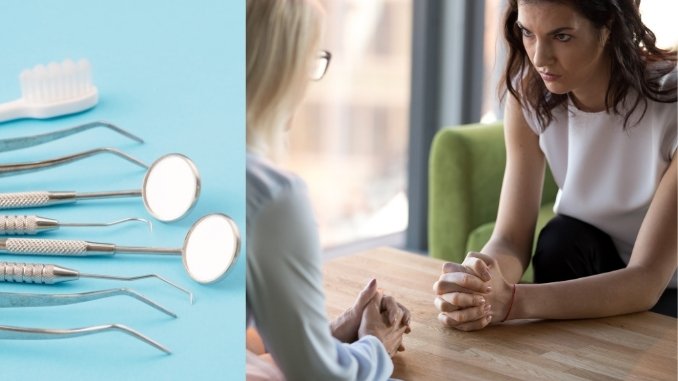
Generally 50% of U.S. dental specialists experienced verbal or reputational aggression by patients in the previous year, and nearly one in four endured physical aggression, as indicated by another examination drove by analysts at NYU College of Dentistry.
The examination, distributed in the October issue of the Journal about American Dental Association, is the first to report aggression toward dental specialists in the United States. Workplace aggression toward medical services experts is normal, with health care settings second only to law enforcement in the pace of violent incidents. Nonetheless, there are no studies of aggression toward dental specialists in the U.S.- – a labor force of 200,000- – and just four examinations have been directed in different nations.

“Workplace violence toward health care professionals is both widespread and widely overlooked,” said Kimberly Rhoades, a research scientist in the Family Translational Research Group at NYU College of Dentistry and the study’s lead author. “The purpose of this study was to provide an initial estimate of rates of patient aggression in dental practices in the United States.”
Rhoades and her colleagues overviewed 98 dental specialists practicing in the New York City metropolitan region; the dental specialists had been working an average of 17 years. Participants finished a secret online study surveying whether they had encountered any of 21 specific types of aggressive behaviours from their patients, including types of physical (for example being pushed or kicked), verbal (for example being offended or sworn at), and reputational (for example threats of lawsuits or posting nasty comments on social media) aggression.
A substantial proportion of dentists reported experiencing aggression from patients in the past year, including physical (22.2%), verbal (55%), and reputational (44.4%) aggression. An even larger proportion of dentists surveyed were subjected to physical (45.5%), verbal (74%), and reputational (68.7%) aggression at some point during their career. These rates of patient aggression toward dentists are high and comparable with those reported in other health care settings.
Also Read: COVID-19 rate among dentists is less than one percent
Rates of aggression did not differ by dentists’ sex, race, ethnicity, speciality, age, years practising, or the average number of patients treated per day.

The rates of physical and reputational aggression toward dentists were similar to those from a parallel study by NYU researchers of aggression toward dental students published earlier this year in the Journal of Dental Education. However, practising dentists experienced less verbal aggression from patients than dental students (55% versus 86%), suggesting that additional experience may reduce the risk of verbal aggression.
“Dentistry is rife with situations that can elicit strong negative emotions, such as fear, pain, distrust, and anger. Many patients also experience high levels of anxiety and vulnerability, which may increase negative responses or aggression,” said Rhoades. “Establishing that aggression toward dentists is a problem and how often it occurs can help us develop interventions to prevent aggression in dental practices.”
The researchers note that, while a larger, national study is needed to determine the true prevalence of aggression in U.S. dental settings, dental practices should consider implementing training that incorporates strategies for handling workplace violence. Training could address how to prevent patient aggression, and manage or de-escalate aggression when it does occur.
